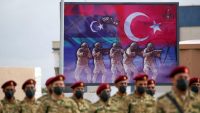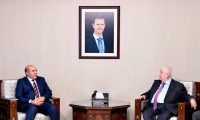
Crisis Group Libya Update #2
A tenuous ceasefire continues to hold in Libya between forces allied to the Tripoli-based government and their rivals in the east. Yet there is reason to worry that the five-month hiatus in the conflict could end abruptly. The 23 October ceasefire agreement silenced the guns but otherwise is a dead letter: both sides have backtracked on fulfilling its terms and instead continue to build up their military forces. Another concern is the failure to find a political way forward. The UN’s attempt to revive dialogue and appoint a new Presidency Council and prime minister to head a unity government has floundered.… Seguir leyendo »










